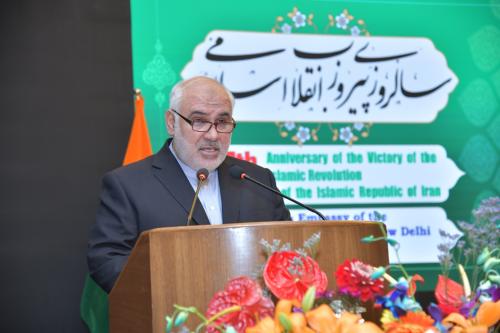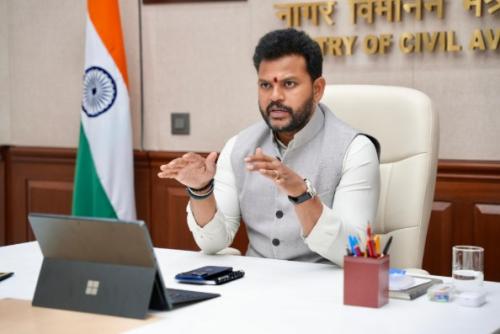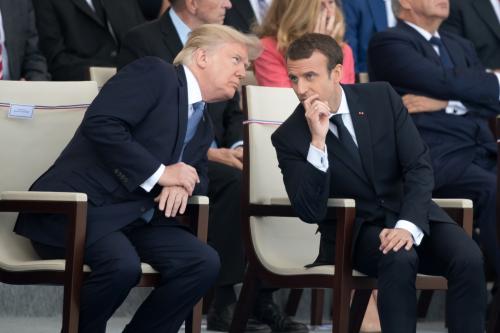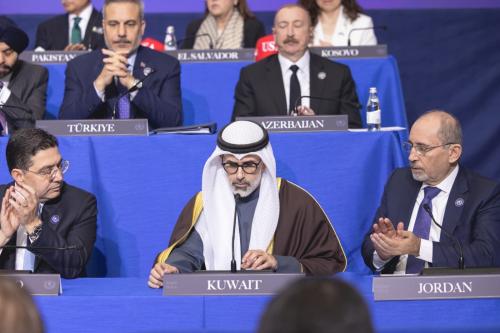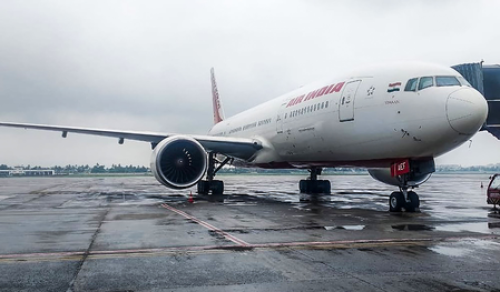By Sumi Khan Dhaka, March 7 (IANS) The historic March 7, 1971, speech, delivered by Bangabandhu Sheikh Mujibur Rahman is considered to be the 'Magnacarta' of tfreedom-seeking Bengalis, as well as an inspiration for the country to break free from the sickles of Pakistan. "Today, I appeared before you with a heavy heart. You know everything and understand as well. We tried with our lives. But the painful matter is that today, in Dhaka, Chattogram, Khulna, Rajshahi and Rangpur, the streets are dyed red with the blood of our brethren. Today the people of Bengal want freedom, the people of Bengal want to survive, the people of Bengal want to have their rights. What wrong did we do?" Rahman said while addressing over 1,000,000 people on that day at the Ramna Race Course in Dhaka. The speech was delivered during a period of escalating tensions between East Pakistan and the powerful political and military establishment of West Pakistan. The then Pakistan military ruler did not give permission to broadcast the speech live on the radio and television. AHM Salahuddin, who was the then chairman of Pakistan International Film Corporation and M Abul Khayer, a member of the National Assembly from East Pakistan, made arrangements to record the video and audio of the speech. The audio was developed and archived by Dhaka Record, owned by Abul Khayer. Later, a copy of the audio and video recording was handed over to Sheikh Mujib and another was sent to India. Three-thousand copies of the audio were distributed by Indian record label HMV Records throughout the world. The speech inspired the Bengali people to prepare for a war of independence amid widespread reports of armed mobilisation by West Pakistan. The Bangladesh Liberation War began 18 days later when the Pakistan Army launched 'Operation Searchlight' against Bengali civilians, intelligentsia, students, politicians, and armed personnel. It is considered to be the worst genocide in human history. On October 30, 2017, Unesco added the speech in the Memory of the World Register as a documentary heritage. In the speech, Bangabandhu announced his directions for a civil disobedience movement, which included people should not pay taxes and government servants should take orders only from Rahman; the secretariat, government and semi-government offices, and courts in East Pakistan should observe strikes, with necessary exemptions announced from time to time; only local and inter-district telephone lines should function; and railways and ports could continue to function, but their workers should not co-operate if they were used to repress the people of East Pakistan. The address lasted about 19 minutes and concluded with, "our struggle, this time, is a struggle for our freedom. Our struggle, this time, is a struggle for our independence. Joy Bangla". International media had descended upon East Pakistan for the speech amidst speculation that Rahman would make a unilateral declaration of independence from Pakistan. However, keeping in mind the failures of Rhodesia's Unilateral Declaration of Independence and of the Biafra struggle in Nigeria, he did not make a direct declaration. Nevertheless, the speech was effective in giving Bengalis a clear goal of independence. The speech changed the course of the country's history, inspiring people to prepare for the Liberation War As soon as the Bangalis were attacked, Bangabandhu formally proclaimed the independence of Bangladesh. Marking the historic day on Sunday, President Abdul Hamid and Prime Minister Sheikh Hasina issued separate messages recalling with gratitude the courageous and farsighted leadership of the Bangabandhu in materialising the nation's journey to freedom through his speech. On the eve of the 101th birth anniversary of Bangabandhu, the nation is set to observe the country's red-letter day on Sunday.
Bangabandhu's March 7 speech is 'Magnacarta' of freedom-seeking Bengalis
- by Rinku
- March 07, 2021 2 minutes
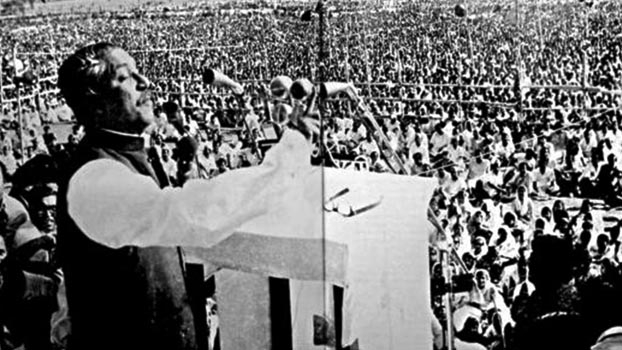
Bangabandhu's Historic 7 March Epic Speech - Magnacarta of the freedom-seeking Bengalis




